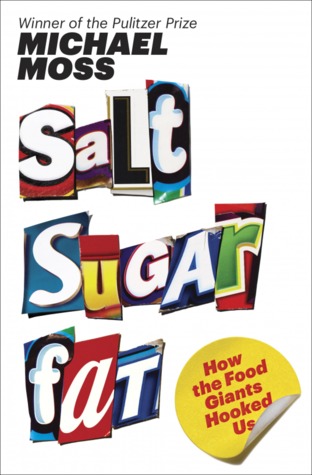The article was entitled, "The Talmud and Other Diet Books."
Go ooooon.
Jonathon Crane is anti-taxing sugary soda, claiming that it is the wrong tactic. Indubitably.
Satiety, the feeling of being satisfied, is inherently idiosyncratic: everyone has her or his own sensation of being full. What sates my hunger will be different from what sates yours. Nevertheless, what sates our hunger will be less than what you might imagine.
Long before cooking shows and diet fads, many ancient civilizations understood this balance. The Greeks, for example, worried that excessive consumption would disrupt the four humors constituting the human body. They, like the ancient Buddhist and Confucian traditions, encouraged moderation as the golden mean. Judaism, Christianity and Islam added to those arguments theological overtones: eating too little could be as spiritually damning as eating too much.
The prophet Isaiah, for example, inveighed against the Israelites for vainly fasting when so much injustice surrounded them. Such fasting, and particularly fasting only for self-affliction, was sinful, rabbis of the Talmud said. But the Talmud also counseled “removing your hand from a meal that pleases you.”
From personal experience, I used to think it would be impossible for me to function on less food than I was consuming then. Pinkt fakert: The less I eat, the better I feel, the more energy I have, the less in thrall I am to nutritionally-dead foodstuffs.
He continues that there are "lavish" holiday meals now in Jewish households. Oh, yes. The wild-eyed shoppers in the supermarket before, during, and after a Shabbos or yontif zealously and indiscriminately chuck items into their cart to stave off a split second of hunger.
"Cholent belly" is now a viable condition. Cholent used to be a mostly meager bean and grain stew flavored with a scrap of expensive meat; currently, they are just slow-simmering potential heart attacks. In the name of religion and tradition, we are eating ourselves to death.
Among these old arguments is the novel idea of eating less than what fills one’s belly. The Talmud teaches that people should eat enough to fill a third of their stomachs, drink enough to fill another third, and leave a third empty . . .
Rashi, a medieval French rabbi, interpreted the Talmud to mean that the final empty third is necessary so that the body can metabolize emotions. If one ate until one’s belly was completely full, there’d be no room left to manage one’s emotions and one would burst asunder . . .
The medieval physician and legal scholar Maimonides similarly instructed people to eat and drink less than what filled their bellies (he thought the stomach should be three-quarters full). Moreover, they should eat slowly. Modern science corroborates Maimonides: it takes about 20 minutes for the brain to receive messages from the stomach that it has had enough. Satiety can be achieved with less food than one might think, and it requires more time to reach it.
Since basic chewing is still a skill I am determined to learn, I've certainly noticed that I can be hungry hungry hungry, stuffing my face, then suddenly I will be uncomfortably stuffed. The stomach and brain need time to chat and send out the right signals. To quote Ma, "Chap nisht."

I was leaving a bar mitzvah, and two waiters were talking on the stairwell behind me.
"What
is it with these people?" one said in disgust. "They eat breakfast,
they eat kiddush, they eat lunch, they eat dinner—if I ate like that, I
would be—" well, it wasn't pleasant how he phrased the probable resultant state of his
digestive system.
At
first I cracked up, laughing all the way to the car, only to stop with a
shiver of horror: He's the waiter. He knows how the sausage is made, so
to speak.

Not only are Jewish homes buying take-out and churning out unhealthy meals, we are also making too much of them, that even overeaters have leftovers. Baltashchis is still on the books, and throwing away perfectly good food due to lack of calculation as to what is needed is more than a downright shame. It is wrong.
We have to realize that enough is enough. We should stop asking ourselves, “Am I full?” and start asking, “Am I satisfied?”










